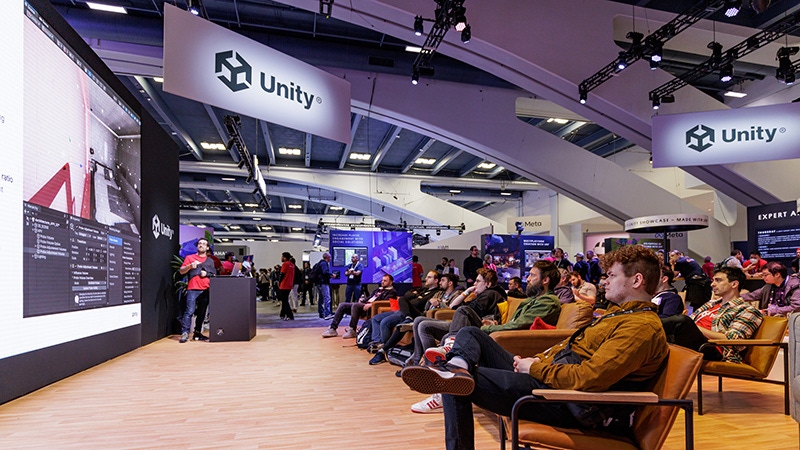Unity tweaks new install fees as developers threaten to jump ship
The company has tweaked its policy to counter potential "install-bombing" and clarified how titles on Xbox Game Pass and similar services will be impacted.

Unity has amended some of the policy surrounding its new "Runtime Fee" that will charge developers per install once they cross certain revenue and download thresholds.
Yesterday, the company announced that, starting in January 2024, it would be introducing a new charge based on the number of players installing titles that leverage its popular game engine.
The fee itself will vary depending on factors including the license being used by developers, the popularity of their project, and whether it's a premium release or free-to-play title.
The bottom line, however, is that Unity has committed to charging creators using its engine an install-based fee that, in the words of Unity Create president Marc Whitten, will "better balance the value exchange" between Unity and developers.
Developers unhappy with Unity's new fees
It would be fair to say the news—which you can read in full here—didn't exactly go down well.
Developers immediately raised a number of concerns, suggesting it would cripple studios using subscription services like Xbox Game Pass or allow malicious groups to target specific developers by deleting and re-installing titles en masse so their creators incur more charges from Unity.
Discussing the latter point with Axios, Whitten said Unity has now tweaked its policy and will only charge for an initial installation. The company had initially suggested deletions and re-installs would result in multiple fees and pledged to use its own fraud detection practices to counter potential "install-bombing." An extra fee, however, will still be charged when a player installs a title on a second device—so, somebody choosing to install a game on their Steam Deck as well as their PC would result in a developer being charged twice.
On the subject of downloads made via Xbox Game Pass and similar subscription services, Whitten added that studios won't be on the hook for those fees and said distributors will be asked to foot the bill. In the case of Xbox Game Pass, that would mean Microsoft picking up the tab.
Notably, Whitten attempted to placate the community by suggesting the thresholds that have been put in place mean only around 10 percent of Unity developers will end up paying runtime fees.
Elaborating on those points in a email sent to Game Developer, a Unity spokesperson sought to hammer home the idea that those developers who will be impacted are "generally those who have successful games and are generating revenue way above the thresholds."
"This means that developers who are still building their business and growing the audience of their games will not pay a fee," they added.
Unity also told Game Developer that "qualifying charities will not be charged for installs," attempting to alleviate concerns that developers who participate in fundraisers, bundles, or similar events would essentially be putting themselves at financial risk. The company intends to provide a way for devs to make it clear when their titles are part of a charitable giving or fundraising campaign.
Are some developers done with Unity?
After the news broke, developers quickly began voicing their concerns and frustrations on social media, claiming the fee will ultimately harm the livelihoods of those studios and creatives that have spent years working with the engine.
In some cases, major studios have threatened to walk away from Unity because of the uncertainty surrounding the new fees. In a statement shared on X, indie studio Aggro Crab called on Unity to "reverse the latest in a string of shortsighted decisions that seem to prioritize shareholders over their product's actual users" after raising concerns about what might happen if people pirate its titles or Xbox Game Pass downloads surge.
Although Unity claims to have addressed the latter point, the strength of Aggo Crab's statement is a clear indication of how much goodwill Unity has hemorrhaged over the past 24 hours.
"If these changes aren't rolled back, we'll be heavily considering abandoning our wealth of Unity expertise we've accumulated over the years and starting from scratch in new engine. Which is something we'd rather not do," added the studio.
Aggro Crab wasn't alone. Writing on X in response to Game Developer's original story, Cult of the Lamb developer Massive Monster told people to buy the title now, because it will be deleted on January 1, 2024, when the Runtime Fee is implemented.
Innersloth, the developer behind the immensely popular social deduction title, Among Us, also posted a statement to explain it will be delaying content and features so it can port the title elsewhere if the new fees stick. "This would harm not only us, but fellow game studios of all budgets and sizes," it wrote.
Elaborating on the studio's position, Innersloth co-founder and programmer Forest Willard said that, although the fees aren't retroactive, the number of downloads pulled in by Among Us each month means it would make more sense for the company to "just hire two whole people to port Among Us away from Unity instead of them taxing us for zero added value."
They also claimed the fees being retroactive or not wouldn't really be a factor in the studio's decision, because "it would still be worth leaving" in either case.
At the time of writing, Unity has clarified and amended its Runtime Fee policy, but it remains firmly part of the company's plans. Devs seeking more information on the Runtime Fee should visit the Unity forums, where the company is currently attempting to answer some of the community's most pressing questions.
About the Author(s)
You May Also Like







.jpeg?width=700&auto=webp&quality=80&disable=upscale)








